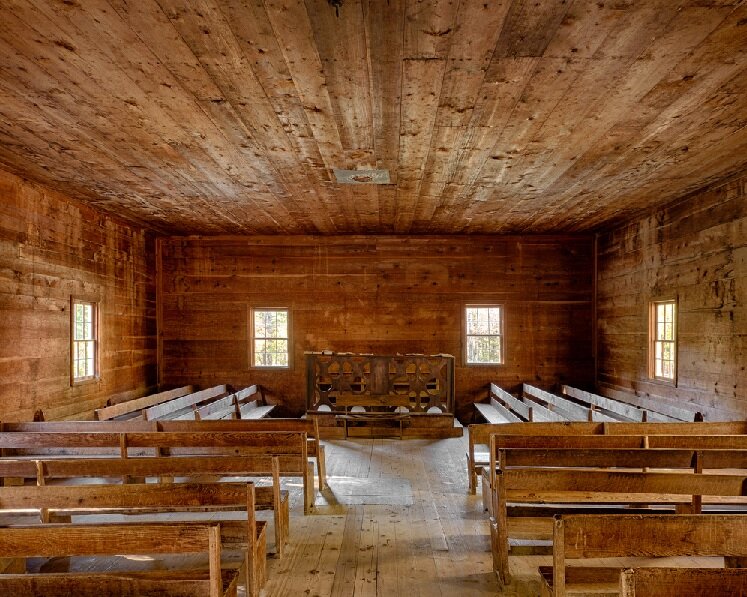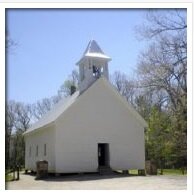On our brief visit to the Smoky Mountains, Karen and I had the opportunity to visit the historic Primitive Baptist Church in Cades Cove. Cades Cove Primitive Baptist Church was established June 16, 1827 as an arm of the Wears Cove Church of Sevier County. Ten people are reported to have established the initial church membership. The church was officially legitimized on June 19, 1829. The Primitive Baptist Church resisted closure until the 1960s, more than twenty years after the establishment of Great Smoky Mountains National Park.
We heard a 20 minute presentation from the volunteer historian as we were seated on an old wooden pew inside the one room building. We heard about the impact in the community such a church had despite its members only assembling once a month for worship services lasting maybe 3-4 hours. Most people in the valley shared the common Christian world view perspective. There were a variety of churches there — including Methodist, Missionary Alliance and Baptist. Each church had its corresponding cemetery — with graves at this site dated as recently as 2013 (you had to be able to document a direct connection within 2 generations).
Some of the observations that stood out to me about this particular church:
-
Church Polity – Plurality of elder government; no payment for the elders; they each might preach in a given service; no formal seminary training
-
Focused on the Bible as the supreme authority — anything that could not be based on biblical authority was viewed as only temporary and man-made rules
-
Preaching – Did not believe in message preparation; they wanted to speak as the Spirit moved them
-
Music — did not allow musical instruments; featured the singing of the notes first (“Fa, La…”) followed by the words
-
Missions — Did not seem to support missions — a distinctive developed by neighboring Missionary Alliance Church
-
Other distinctives: did not believe in Sunday School or temperance societies
-
Segregated seating by sex — children and women together; men and boys older than 12 together
-
Church Discipline — very effective since there was an economic impact of shunning due to the need for bartering in their culture
-
Very strong culture of caring for one another in a community setting — meeting the practical needs of members — whether paying medical bills, help in raising a barn that had been burned down; etc.
-
Took a stand against slavery in the context of the Civil War despite being down in the south and subject to persecution
-
When someone died, they rang the church bell to signify the age of that person — so it was easy to recognize the identity of who had died
-
Unique architectural feature: built by hand — you can see the fingerprints of the workers in the sap on the wood-planked ceiling


